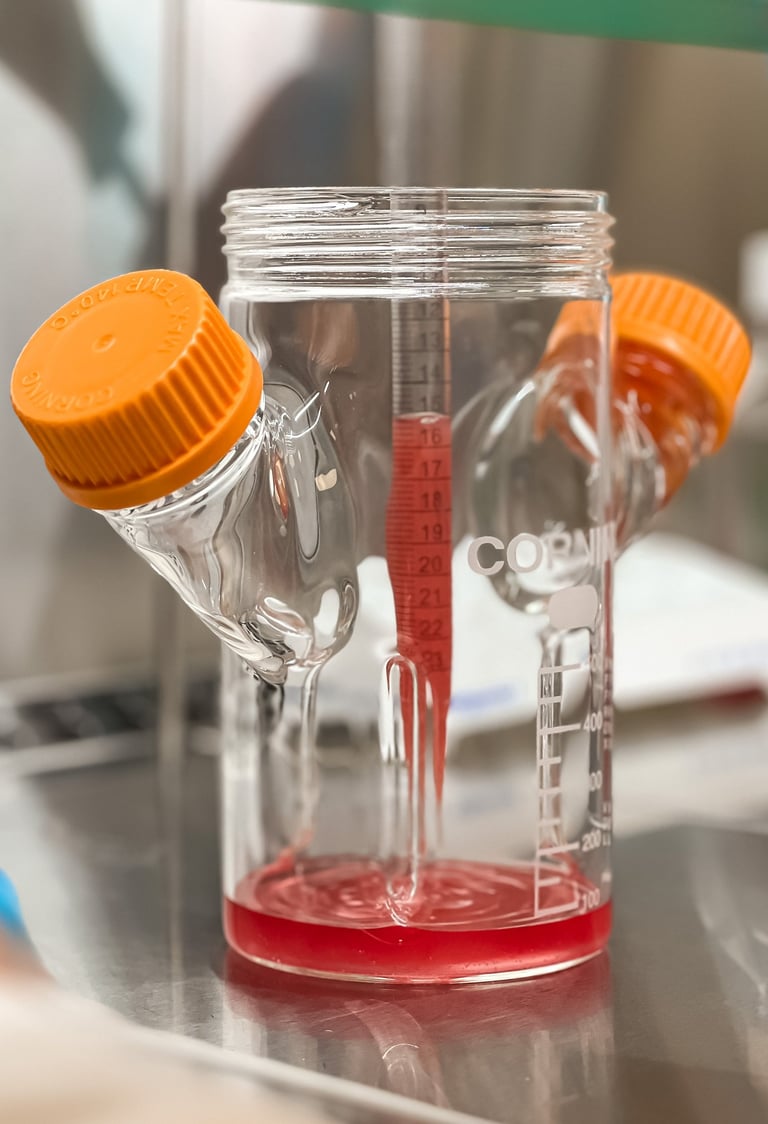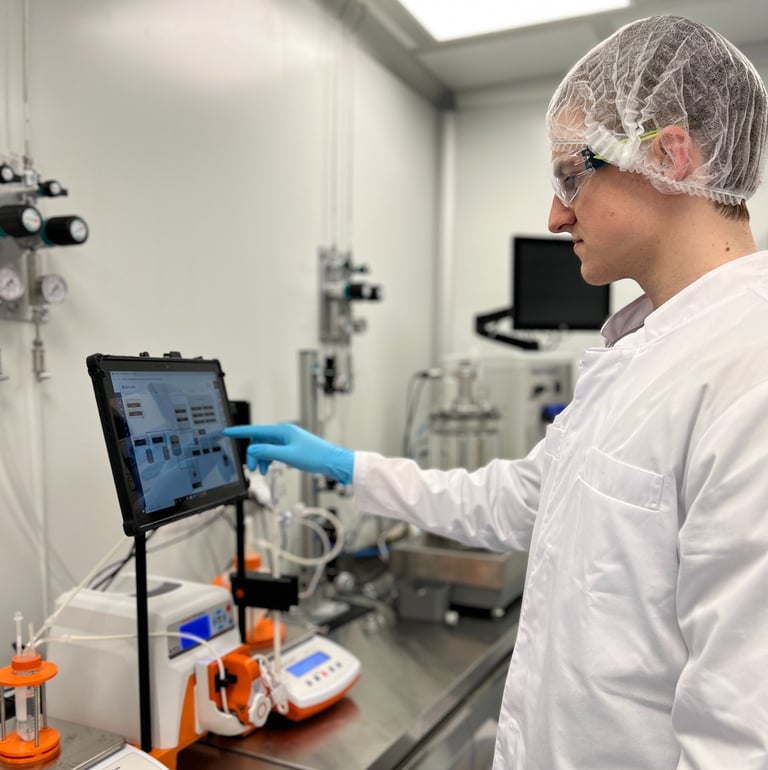
Placental EVs Platform
Leveraging extracellular vesicles for non-clinical and clinical applications
EXTRACELLULAR VESICLES POTENTIAL


EVs transfer proteins, lipids, miRNAs, and mRNAs between cells, leading to the modulation of immune cell activity. EVs can induce an M2-like phenotype in monocytes, resulting in the polarization of activated CD4 T-cells to regulatory T-cells. Mesenchymal Stromal Cells (MSCs)-derived EVs inhibit immune cells and contain tolerogenic molecules, reducing inflammation, fibrosis and promoting tissue repair.
Immunomodulatory potential
Angiogenesis potential
Intercellular communications
Regulation of senescence and apoptosis
Extracellular vesicles (EVs) are tiny vesicles enclosed by membranes that are crucial for cellular activities and are secreted by almost all cell types.
EVs released by the mesenchymal stem cells have been shown to exert anti-senescence effects through multiple mechanisms, such as reducing oxidative stress, promoting cell proliferation and migration, and modulating the immune response.
EVs secreted by the MSCs can promote tissue repair by providing growth factors, cytokines, and extracellular matrix components to the injury site and can positively affect tissue repair by reducing apoptosis.
EVs play a crucial role in cell recruitment, retention, differentiation, and ECM composition by expressing adhesion molecules, integrins, and ECM-remodeling proteins like matrix metalloproteinases (MMPs). EVs contribute to ECM strength by crosslinking collagens and elastin, affecting local ECM production.
EVs can stimulate endothelial cell vessel formation by transferring mRNA, miRNAs, and proteins. MSC-derived EVs can increase vascularization in non-clinical and clinical applications.
Our approach allows EVs' large-scale separation and concentration from other cellular debris and unwanted proteins, resulting in pure final EV-based prototypes.
OUR APPROACH
Platform Development
We focus on developing advanced therapy that utilizes placental MSC-derived EVs for non-clinical and clinical applications.
Platform Characterization
Bioreactor-scale cell culture enables us to collect, concentrate, characterize, and apply EVs in subsequent applications. We have employed a high-throughput tangential flow filtration approach for cost-effective EVs preparation from characterized perinatal stromal cells.
Platform Application


